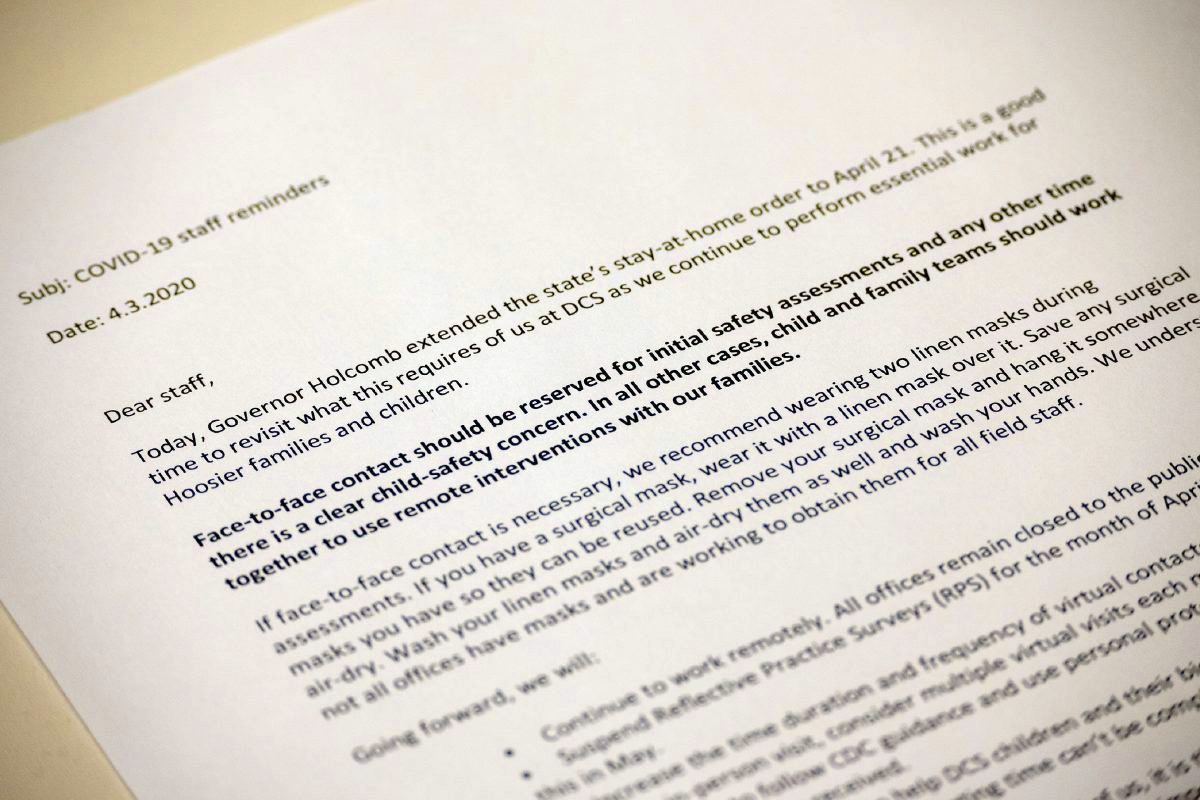Some of Johnson County’s most vulnerable children split time between their biological guardians and foster parents, and the coronavirus pandemic has thrown a wrench in already complicated situations.
While there are clear guidelines for businesses and schools during the ongoing pandemic, representatives from the local chapter of Court Appointed Special Advocates, commonly known as CASA, have had to look at each situation on a case-by-case basis and adjust its practices.
That means meetings between foster parents, state caseworkers, CASA advocates and a supervisor for each of the 137 children CASA represents in Johnson County, many of whom are stuck in limbo as non-essential court hearings have been put off until the state reopens, said Tammi Hickman, director of Johnson County CASA.
With most court operations suspended, judges are hearing about two cases a week involving the Department of Child Services, or DCS, to place children in foster homes in emergency situations. Review hearings for parents hoping to regain custody of their children, however, have been pushed back to May or June, leaving some families and kids in limbo, Hickman said.
[sc:text-divider text-divider-title=”Story continues below gallery” ]Click here to purchase photos from this gallery
An internal memo shared by Department of Child Services spokesperson Noelle Russell advises DCS caseworkers to avoid face-to-face interaction except during initial safety assessments, or if there are any concerns about a child’s safety. Otherwise, DCS caseworkers have been told to interact via phone or video. If face-to-face meetings are necessary, workers are told to wear masks, according to the memo.
Meetings between DCS, CASA and foster parents help determine whether it is safe for children to visit their biological guardians during statewide stay-at-home orders. Children who would not normally visit their parents in the case of abusive circumstances or imprisonment would not do so during the pandemic. Children who had supervised visits would still have those.
The gray area is in circumstances where children meet their biological guardians in public places, such as malls and restaurants, which are now closed, Hickman said.
Further complicating things is balancing the risk of exposure with the rights of biological guardians to see their children, she said.
“Maybe kids are going back and forth to grandma’s house or dad’s house for visits and there’s possible exposure,” Hickman said. “Do you think it’s fair to deny access to their child? It’s a very hard formula to work out. Some (foster parents) are going face-to-face with parents. Others are doing everything by video. If they’re deciding not to do in-home or personal visits, we can’t do face-to-face. We have to look at them individually and see the best course of action.”
Another challenge is with foster parents who work in essential businesses, such as supermarkets, or in hospitals and other front-line environments. In those circumstances, strategic meetings between CASA, foster parents and children can occur via video, she said.
“A lot of them work in front-line positions, and at times, they are in total quarantine; it makes it harder to do face-to-face visits,” Hickman said. “My volunteers have stepped up to the plate. They’ve done a great job with technology and FaceTime on phones. If we can’t do face-to-face, we can at least do video visits. We’re probably speaking to kids more than (we were) prior to this time.”
It is a CASA’s job to make sure a kid’s voice is heard, and that they feel like they matter in the midst of ongoing custody battles. That hasn’t changed.
For Easter, CASA volunteers purchased baskets that included sidewalk chalk and left them at foster homes, Hickman said.
“It’s not ideal, but it has worked out," she said. "It gives kids something to smile about.”





